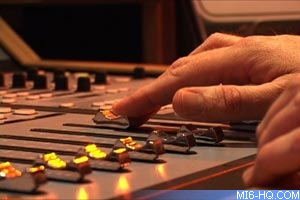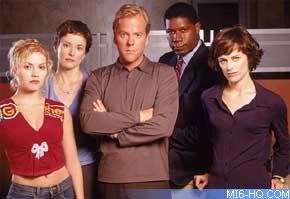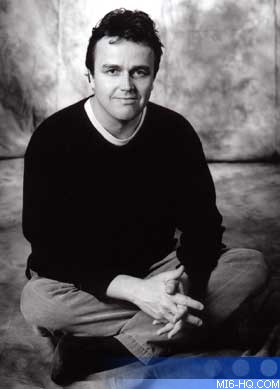 |
| |
MI6 got together with the 2003 Emmy award winner
Sean Callery earlier this year as he was in the midst
of finishing up the score to the new Bond game "Everything
or Nothing."...
|
|
Interview - Sean Callery (Part 1)
21st November 2003
MI6 got together with the 2003 Emmy award winner Sean Callery
earlier this year as he was in the midst of finishing up the
score to the new Bond game "Everything or Nothing."...
Game scouring...
How were you approached by Electronic Arts to score 'Everything
or Nothing' ?
EA contacted my agent at the Gorfaine/Schwartz agency here
in Los Angeles and requested demo material while I was completing
work on season 2 of "24". Several other Gorfaine clients
provided submissions as well. A final list of candidates was formed
comprised of composers from various agencies. I was one of 4 finalists
chosen. From there we had a series of interviews. I had a conference
call with the executive producers and a one-on-one interview as
well. EA was very thorough in its interview process. They are
a great company to work for, and I was grateful to have been selected
for this wonderful project.
 |
|
How eager are you to be involved in a project that
is related to such a famous series?
I am extremely excited and honoured to have been selected
to compose the music for this project. I am surrounded
and
supported by the most artistic and professional crew at
EA. It seems as if everyone I work with is a huge Bond
fan
I have been watching Bond movies since my Mom let me stay
up late to watch them when I was in grade school.
|
I remain a huge fan to this day, and music is timeless, really;
these melodies were written around 40 years ago, and they are
still as fresh and exciting as ever. It's so wonderful to be
able to work with these incredible themes that have stood the
test of time
You've scored the hit television series "24",
do you think this was your big break in television? Has it
led to
other opportunities you may not have been approached with otherwise?
|
I was fortunate enough to work with executive producer
Joel Surnow on another series years ago called "La
Femme Nikita". We worked on that series for 4+ years
and we developed a great creative synergy over time. I would
like to think that my work on "24" helped in my
being considered for this Bond project, but my work on the
show certainly doesn't guarantee anything. There are so
many talented composers out there. I am very fortunate to
be a part of such a great series. Everyone on "24"
gives 110%.
|
|

Above: 24 - Cast. |
Can you tell us a little about the music for the 3rd season
of 24, and how the music will different from the past seasons?
I've been deep into the beginning of Season 3 of "24". The first hour
is commercial free-which is rare in the U.S. So far the music has had a kind
of abrasive, raw minimalist feel. Several plots are put into play at once, and
the look and feel of the show is a bit edgier from last season. Again, I hope
the fans will be pleased.
What are the main differences with composing music for a
game compared to a movie? How challenging has it been, since
this is your first video game?
Excellent question... The
primary difference in writing music for games is that it is
a during-production process; writing
for television and film
is mostly a post-production process. When I am writing for "24",
I receive a locked picture (or close to it) and I have the picture
to use as a guide for the spotting and scoring. For this game,
the composing process involves consulting storyboards, the game's
designers, as well as video feeds from the game as it evolves
from day to day. Often, a mission will be changed, sometimes
very
dramatically, and I respond to those changes as they come up.
Sometimes they are textural changes, sometimes the length of
the
music I'm writing has to be longer.
 |
|
Also, the music has to be designed in a way that gives
the game programmers flexibility in editing the music in
various ways, as it needs to adjust to any player's movements/game
playing ability. In film and television, an action scene
will always play a certain length (once the picture is
locked).
Therefore the arc of the music in a particular film or
TV scene is written and married to the locked picture.
In gaming,
that concept is thrown out the window (except in the
case of cinematics, which are locked picture images that
advance
story).
The music in games needs to maintain dramatic
energy, of course, but it has to be flexible enough to
be able to
accommodate the thousands of different variations in
how a mission is played out. It's fun figuring out the
best
way to make the music work dramatically in the best
possible way. Left: Sean Callery |
Keep an eye out for the second and final part of the interview
later in the year as "Everything or Nothing" approaches...
Many thanks to Sean Callery.
Related Articles:
 Interview - Sean Callery
(Part 2)
Interview - Sean Callery
(Part 2)
 "Everything or Nothing"
MI6 Coverage
"Everything or Nothing"
MI6 Coverage
 Interview - Dave L
Interview - Dave L